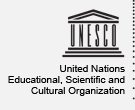Presentations 2016
Dahlquist-Willard, Ruth
Presentation Title
Groundwater challenges faced by Southeast Asian smallholder farmers in Fresno County, California
Institution
University of California Cooperative Extension, Fresno County
Video
Video Not Available
Presentation
Profile Picture

Abstract
Smallholder farmers in Fresno County, and in particular Hmong and other Southeast Asian refugee farmers, are facing multiple challenges as a result of reduced groundwater availability during the current drought. As the water table drops, smallholder farmers must make critical production decisions on whether to reduce their crop acreage or irrigate their total acreage in smaller sets due to decreased flow rates. Many smallholder farmers have encountered drastic increases in their operational costs associated with higher electrical bills due to changes in irrigation scheduling. In these cases the pump may be turned on for a longer period of time than usual, either to irrigate several sets one by one, or to completely flood to the end of a row using surface irrigation. Many smallholder farmers face difficulties obtaining financing to deepen their wells or drill a new well. This is especially true for smallholders who do not own their land, as is the case for most Southeast Asian farmers in Fresno County. Minority and refugee farmers in general are at a particular disadvantage in seeking government and non-profit drought relief assistance due to language and cultural barriers. This paper examines how Hmong refugee smallholder farmers are experiencing the drought, and the strategies they are using to respond to the reduction in groundwater availability. It also evaluates the degree to which this group of farmers is able to access drought relief programs. Our data is drawn from 71 telephone interviews with Southeast Asian smallholder farmers in Fresno County. Interview questions included basic information on the grower’s irrigation system and any problems with wells or pumps, as well as their knowledge of and participation in governmental or nonprofit drought-relief programs. We present results of this study to demonstrate the unique impact that groundwater challenges are having on the economic viability of smallholder immigrant and ethnic minority farmers in our state, and to identify opportunities for greater outreach and support for these vulnerable farmer populations.
|












